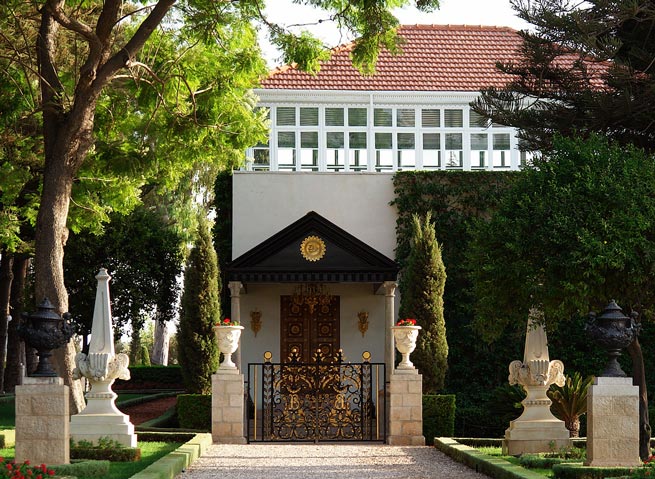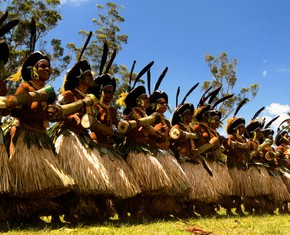The views expressed in our content reflect individual perspectives and do not represent the authoritative views of the Baha'i Faith.
I beg of God to strengthen these spiritual bonds as day followeth day, and make this mystic oneness to shine ever more brightly, until at last all shall be as troops marshalled together beneath the banner of the Covenant within the sheltering shade of the Word of God; that they may strive with all their might until universal fellowship, close and warm, and unalloyed love, and spiritual relationships, will connect all the hearts in the world. Then will all humankind, because of this fresh and dazzling bounty, be gathered in a single homeland. – Abdu’l-Baha, Selections from the Writings of Abdu’l-Baha, p. 19-20.
Baha’u’llah, the prophet and founder of the Baha’i Faith, left this material world 123 years ago today, on May 29th, 1892.
Seventy-five years of age when he passed away, Baha’u’llah’s life included a remarkable number of both heroic and harrowing events–as a Persian nobleman, a poet, a mystic, his country’s acknowledged and celebrated “Father of the Poor,” a prisoner of conscience, a torture victim, an exile, and above all, the prophet who promulgated the world’s newest and second-most widespread religion, the Baha’i Faith. His astounding life has now become a model of spiritual and social progress for millions of people all around the world. Baha’is come from every class, every nation, every racial group and every former Faith—and are committed to universal fellowship and love, following the ideals and principles Baha’u’llah taught.
When Baha’u’llah passed into the next world in 1892, religious observers and historians wondered if his new Faith would survive. They were in for a shock.
The Baha’i Faith not only survived, it thrived, grew rapidly and spread to every continent—without splitting up into the hostile sects and warring divisions that frequently plague new religions soon after the deaths of their founders.
No major new world religion has ever done this before.
Often as a result of the violent opposition their radical teachings first generate among the prevailing cultures they appear in, new Faiths typically struggled to stay unified after the passing of their founders. Persecuted, misunderstood, exiled, tortured and imprisoned, the early Jews and Buddhists and Christians and Muslims suffered tremendously and died in large numbers for their beliefs. Entire governments tried to exterminate them. But even worse, their own members argued, fought, entered into internecine conflicts and broke the founder’s new Faith into many conflicted and contentious sects. This happened universally, until the advent of Baha’u’llah.

The Shrine of Baha’u’llah
Repeatedly persecuted, exiled, jailed and tortured for his progressive teachings, Baha’u’llah prevented that fractious fate by establishing a written Covenant that passed the leadership of the Baha’i Faith to Abdu’l-Baha, his eldest son. When Abdu’l-Baha passed away in 1921, he named his grandson Shoghi Effendi as the Guardian of the Faith and the Center of that continuing Covenant. Today, after the passing of the Guardian in 1957, no appointed leader of the Baha’i Faith remains—instead, leadership has transferred to the democratically-elected global administrative body called The Universal House of Justice. The Baha’i Covenant—the binding agreement that all faithful Baha’is would turn to the appointed or elected head of the Faith—was challenged but never compromised, and the Baha’is as a body of believers remain enthusiastically united around the world.
The Baha’i teachings say that Baha’u’llah underwent this terrible treatment for the last four decades of his life, just as all the prophets of God have undergone persecution, as a sacrifice for all humanity and as an example of the power of unity. Abdu’l-Baha said that Baha’u’llah:
…bore all these ordeals and calamities in order that our hearts might become enkindled and radiant, our spirits be glorified, our faults become virtues, our ignorance be transformed into knowledge; in order that we might attain the real fruits of humanity and acquire heavenly graces; in order that, although pilgrims upon earth, we should travel the road of the heavenly Kingdom, and, although needy and poor, we might receive the treasures of eternal life. For this has He borne these difficulties and sorrows. – The Promulgation of Universal Peace, p. 28.
Baha’u’llah’s teachings emphasize the sanctity of the human rights of all people. Baha’is believe in the independent investigation of truth and the absolute freedom of everyone to worship as they wish. Those challenging ideas caused the Persian and Ottoman governments to subject Baha’u’llah to four decades of cruel and unusual punishment. Baha’u’llah underwent terrible suffering, not for any crime, but for promulgating the peaceful principles of a new Faith, which boldly challenged the orthodoxy and the power structure and the endemic corruption of the existing governmental, social and religious order.
So despite the passing of Baha’u’llah, the Baha’i Faith continues to grow, develop and prosper in every corner of the planet.
Today Baha’is around the world will gather to observe and commemorate the anniversary of the passing of Baha’u’llah. In those thousands of solemn and prayerful occasions, filled with meditative contemplation and remembrance, Baha’is everywhere will reflect on the powerful teachings of this relatively new Faith and remember the extreme sacrifices it took to bring the Baha’i message of unity to humanity.
















Comments
Sign in or create an account
Continue with Googleor